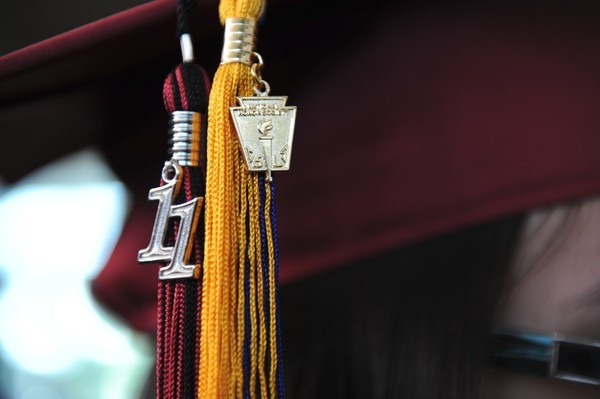Incoming college freshmen opting for a gap year

Many high school graduates are choosing to take a gap year instead of going straight to college during the 2020-21 school year.
September 18, 2020
With the degree of uncertainty the world is currently facing due to the pandemic, a large portion of college students nationwide are choosing to take a gap year instead of beginning their university education in the fall of 2020. This is especially true at top-tier private universities, where tuition is just too high to justify taking virtual courses, which many students believe cannot compare in rigor or educational value to the traditional in-person classes. Not to mention, the chance of a typical college social experience is simply out of the question, at least for the first semester, with the cancellation of sports seasons and prohibition of large gatherings and parties.
Harvard University, arguably the most prestigious school in the nation, recently announced that 20 percent of their incoming first-year students are opting to defer their enrollment in the fall of 2020. Williams College, a very well-known liberal arts school, has shown the most substantial increase in deferrals, with 90 percent of students choosing to take a gap year, according to the Boston Globe.
In the past, a large portion of students who took a gap year used the time to travel abroad, whether it be to volunteer as part of a mission trip or just for fun. Many also pursued jobs or internships which may give them valuable work experience before they began college. Unfortunately, in 2020, neither of these options are viable due to closed country borders and a shortage of job availability. However, there are a number of new opportunities for students taking a gap year, with the creation of various virtual organized gap year programs. For example, Global Citizen Year has launched Global Citizen Academy, a semester-long program designed for students to “develop skills that unlock self-awareness, well-being and a sense of purpose.” Boost by Kaplan is another option, whose goal is to “show you new, enterprising ways to define your goals, explore job opportunities, and carve out a future that’s tailored to you.” The idea behind these programs, and others similar to them, is to allow students to engage in the self-discovery experiences that are usually found during a gap year, but safely from home and with minimal cost.
According to the American Council on Education, universities can expect to see a $45 billion plunge in revenue from room and board tuition alone, as a result of the decline in enrollment. This, combined with the loss of revenue from fall sporting events, could push many schools to their financial breaking point, potentially forcing closures.
While the exact effect that the influx of college deferrals will have on the class of 2021 remains unclear, it is possible that college admissions may become more competitive, since high school seniors will be applying for entry into a class that has fewer spots available to them than in previous years.
COVID-19 has certainly turned the world upside down, its effect on colleges and universities is no exception. Perhaps the thousands of students taking a gap year in 2020 will begin school in 2021 singing the praises of a gap year, allowing the nationwide trend to continue in the future. Alternatively, the world may see a spike in TikTok content created, as high school graduates sit in their parents’ basement with too much time on their hands. Whatever the outcome of the students’ time off from school may be, hopefully they will be able to enter the 2021 school year with some degree of normalcy.






